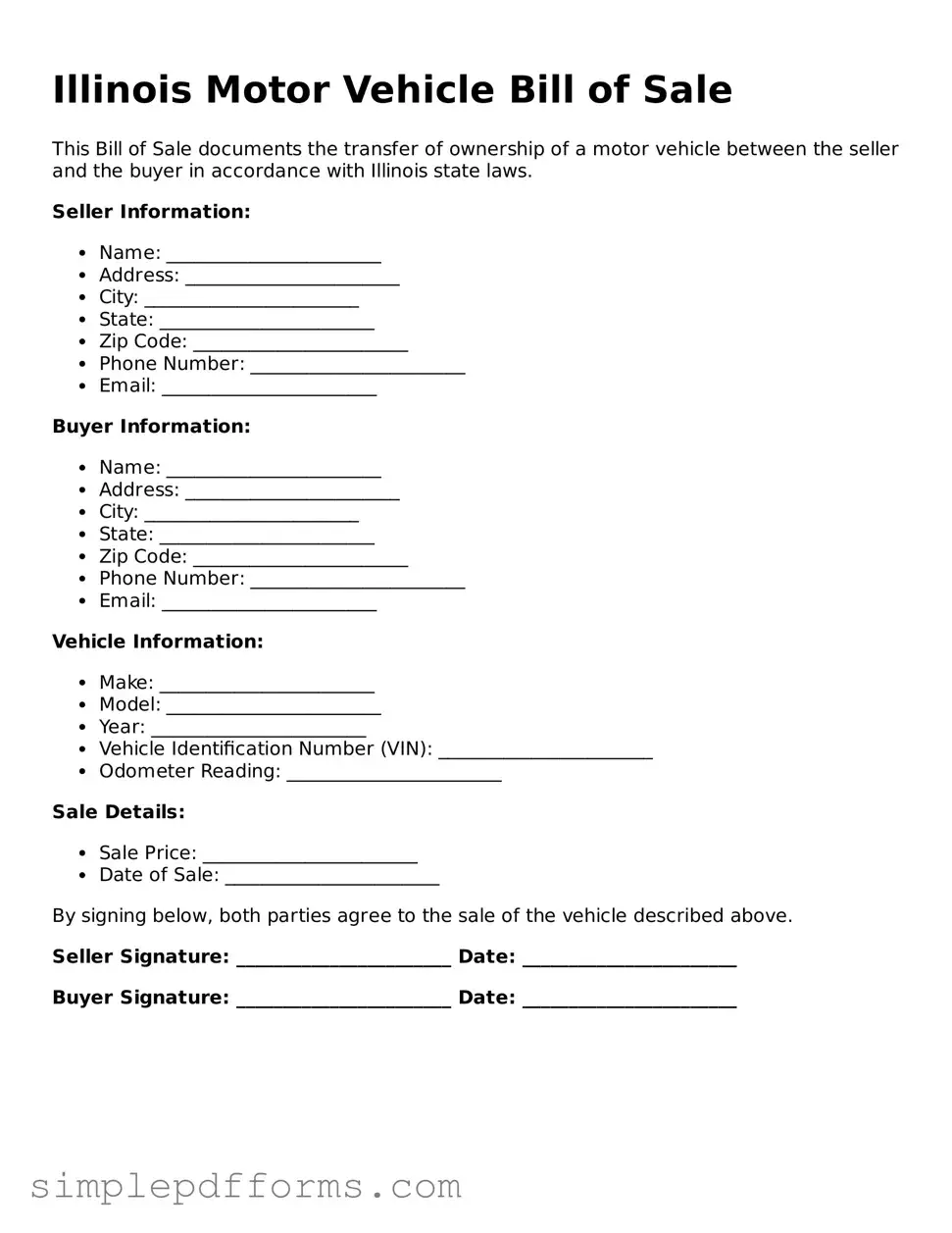Attorney-Verified Motor Vehicle Bill of Sale Document for Illinois State
The Illinois Motor Vehicle Bill of Sale is a legal document that records the transfer of ownership of a motor vehicle from one party to another. This form serves as proof of the transaction and includes essential details such as the vehicle's description, sale price, and the names of both the buyer and seller. Properly completing this document can help protect both parties and facilitate a smooth transfer of title.
Open Motor Vehicle Bill of Sale Editor Now

Attorney-Verified Motor Vehicle Bill of Sale Document for Illinois State
Open Motor Vehicle Bill of Sale Editor Now

Open Motor Vehicle Bill of Sale Editor Now
or
Get Motor Vehicle Bill of Sale PDF Form
Your form is waiting for completion
Complete Motor Vehicle Bill of Sale online in minutes with ease.